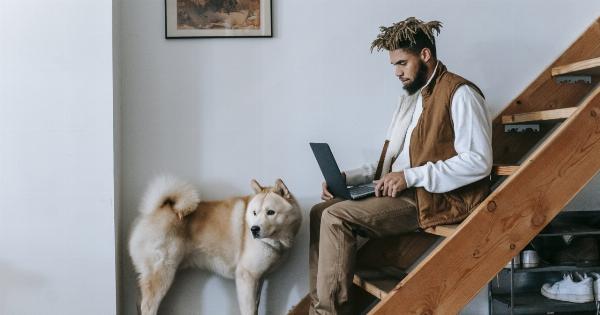Socializing your dog is crucial for their overall well-being and development. It helps them become more comfortable in various settings and with different people and animals.
Additionally, a well-socialized dog is less likely to exhibit aggressive or fearful behavior in unfamiliar situations. Here are some tips to help you successfully socialize your furry friend:.
Start Early
Early socialization is key to raising a confident and well-adjusted dog. The critical period for socializing puppies is between 3 and 14 weeks of age.
During this time, their brains are highly adaptable, making it easier for them to learn and accept new experiences. Expose your puppy to a wide range of sights, sounds, smells, and textures, and ensure positive interactions with people and other animals.
Take Baby Steps
When introducing your dog to new people or animals, it’s important to take slow and gradual steps. For example, if your dog is fearful of strangers, start by having friends over who can interact with your dog from a distance.
Gradually decrease the distance over time until your dog feels comfortable having close interactions.
Positive Reinforcement
Rewards and positive reinforcement play a vital role in socializing your dog. Whenever your dog displays desired behavior, such as calmness or friendly greetings, reward them with treats, praise, or play.
This positive association motivates your dog to repeat the behavior in future interactions.
Exposure to Different Environments
Expose your dog to various environments to prevent them from becoming overly dependent on specific surroundings. Take them for walks in different neighborhoods, parks, and areas with different levels of noise and activity.
This exposure helps them feel more at ease in unfamiliar environments and reduces anxiety when faced with new situations.
Enroll in Training Classes
Signing up for a training class not only helps with obedience but also exposes your dog to other dogs and people in a controlled environment. Look for classes that emphasize positive reinforcement and socialization.
These classes provide an opportunity for dogs to learn proper behavior while in the presence of other dogs and people.
Supervised Playdates
Arrange supervised playdates with other well-vaccinated and socialized dogs. This allows your dog to interact and play with others in a safe environment.
Observe how your dog behaves and ensure all interactions are positive and that play doesn’t escalate into aggression.
Desensitization Techniques
If your dog is fearful or reactive to specific stimuli, such as loud noises or bicycles, gradually expose them to these triggers in a controlled manner.
Start with a low-intensity version of the trigger and gradually increase the intensity as your dog becomes more comfortable. Use treats and praise to reward your dog for remaining calm during the exposure.
Consistency is Key
Consistency is crucial when socializing your dog. Set aside regular time each day for socialization activities and ensure every interaction is positive and supportive.
The more consistent you are, the faster your dog will learn and adapt to new experiences.
Seek Professional Help if Needed
If you encounter difficulties or your dog displays problematic behaviors during socialization, don’t hesitate to seek professional help from a certified dog trainer or behaviorist.
They can provide guidance and develop a tailored plan to address your dog’s specific needs.
Never Force or Punish
Socialization should always be a positive experience for your dog. Never force them into uncomfortable situations or punish them for displaying fearful or anxious behavior. This can create negative associations and hinder their progress.
Patience, understanding, and positive reinforcement are key.
Provide Ongoing Socialization
Socialization should continue throughout your dog’s life. Regularly expose them to new experiences, people, animals, and environments to ensure they remain confident and well-adjusted.
Even well-socialized dogs benefit from ongoing social interaction and exposure to different stimuli.
Conclusion
Socializing your dog is an ongoing process that requires patience, consistency, and positive reinforcement. With these tips in mind, you can help your furry friend become a well-rounded and confident companion.
Remember to start early, take it slow, and seek professional help if needed. Happy socializing!.





























